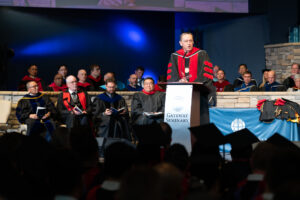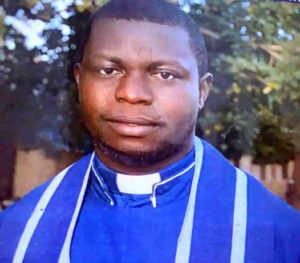
NASHVILLE, Tenn. (BP) — As I peered into the field kitchen of the Israeli anti-missile unit near Rehovot, I saw two refrigerators marked with four-inch-tall letters. Rusty on my Hebrew, I asked one of the soldiers and learned these were the words for milk and meat.
This was one of the ways the Israeli army maintained kosher standards, working from a rabbinic interpretation of Deuteronomy 14:21, the part about not boiling a young goat in its mother’s milk. (I should have known, given my experience in a Tel Aviv hotel back in the 1990s, when I was traveling with a group of profs from Midwestern Baptist Theological Seminary. When I ordered a hamburger and milkshake through room service, they wheeled them in on two separate carts.)
This time, I was in Israel as a guest of the Friends of the Israeli Defense Forces (FIDF), a group dedicated to soldier welfare causes (scholarships; family hardship relief; recreational facilities; etc.).
From the border of Gaza to the Golan Heights, we met a lot of soldiers, got a lot of briefings and saw a lot bases and equipment. It was a fascinating tour, especially for an old army guy who’d been involved with some of the gear now in play in Israel, including Blackhawk helicopters and Vietnam-era M113 personnel carriers.
But, for me, the most intriguing items were religious, and I saw connections everywhere. When I asked a young American-Israeli soldier about the bread/milk separation, she said that dietary sensitivities were, indeed, significant, for she herself had been criticized for bringing non-kosher chocolate back to the unit from a visit home.
When we stopped at a drone (UAV) base, whose mission was to monitor and respond to terrorist Katyusha rockets launched from Gaza, I saw that the words of the lookout in Isaiah 21:8 were posted in Hebrew letters on the outside wall: “Lord, I stand on the watchtower all day, and I stay at my post all night.” Inside, they showed us aerial videos demonstrating the care they took to avoid targeting the “uninvolved,” and I was reminded of the words of Jeremiah 22:3, which forbids the Israelites to “shed innocent blood.”
Everywhere we turned, we saw kippahs (yarmulkes) on the crown of soldiers’ heads (a counsel of piety from various Talmudic passages).
A paratrooper photo book they gave us showed a soldier at the front pausing in his foxhole to offer prayer with his phylacteries/tefillin in place on forehead and arm, following Deuteronomy 6:8. Then, drawing from the same chapter in Deuteronomy (verse 9), many of the personnel we met in various headquarters had affixed mezuzahs to their office doorposts. Both the tefillin and mezuzahs contained the Shema, found in verses 4 and 5: “Listen, Israel: The LORD our God, the LORD is One. Love the LORD your God with all your heart, with all your soul, and with all your strength.”
As for the aforementioned book, we received it at a night induction ceremony at the Wailing Wall, where each paratrooper was given a copy of the Tanakh (the Hebrew Old Testament) before receiving his rifle.
For all the Jewish cultural items, we still saw connections to other faiths. Many of the Christians serving in the Israeli army were Orthodox from Russia who had taken advantage of the “right of return” for all who could demonstrate even one Jewish grandparent. (This was, in part, an answer to Hitler, who sent people to the death camps for having one.)
Then we learned there were Muslims in the IDF, many who were Bedouins in the Desert Reconnaissance Unit, and that the Israeli canine corps tries to honor Muslim sensitivities by not using dogs to search buses or mosques.
We also saw the Druze in the north, a people who had signed a blood oath years ago to defend Israel since so many of their villages had been decimated by Muslims. (Our guide pointed out the special garb of a Druze man near Mount Hermon; his baggy pants were designed to catch the surprise birth of a baby, since they believe the coming Messiah will be born of a man.)
Sad to say, the majority of soldiers are pretty secular, admittedly “non-religious,” but the sea of military culture in which they swim is surprisingly rich with biblical references. Of course, I wish devotion to the New Testament and to the Messiah whose coming it proclaims would flourish in the IDF, in Israel and in the surrounding nations that have tens of thousands of missiles trained on this tiny nation.
Still, though I am not a dispensationalist or a prophecy maven, I have to think that Israel’s enemies should think twice or thrice about taking her on, for I think there is more at play in her security than electronics, explosives and elite troops.
–30–
Mark Coppenger is professor of Christian apologetics with Southern Baptist Theological Seminary and director of the seminary’s Nashville extension.















